

FACT BOOK



The Office of Data Analytics, Institutional Research, and Effectiveness (DIRE) is a centralized resource for statistical information about Morehouse. Our primary role is gathering, analyzing, and presenting information from diverse sources on students, faculty, and staff from various sources. These data support institutional planning and decision-making and are collected through a rigorous process, ensuring accuracy and reliability. In addition, DIRE also assures compliance with mandatory federal, state, and other external agencies and coordinates the College's annual planning cycle.
The Fact Book is an institutional data reference for the Morehouse community, providing a one-stop source of vital institutional data on student admissions, enrollment, demographics, majors, retention rates, graduation rates, degree completions, faculty, facilities, financial aid, and finances. The Fact Book is issued annually and contains a comprehensive compilation of the latest externally reported data to promote transparency and answer the most frequently asked questions.
We are thrilled to announce that Morehouse has been awarded first-place (1st) in the Best Print Report category for AY 2022-23 by The Southern Association for Institutional Research (SAIR)! This prestigious recognition not only validates the quality and reliability of the data in the Fact Book but also enhances Morehouse's standing in the field of institutional research. DIRE takes pride in the Fact Book being recognized as a model for its centralized collection of institutional information and data. The judged categories include design, content, creativity, and data quality.
In response to the global COVID-19 pandemic, Morehouse has made necessary adjustments to its operational and educational processes. These changes have influenced the data reported in this year's Fact Book. However, most metrics, data definitions, and reporting methodologies remain consistent. Any variations in the data are clearly explained in the footnotes, ensuring transparency and accuracy in our reporting.
The latest version of the Fact Book, which includes updates and corrections, is posted on DIRE's website.



Director JILL
Associate Director

Senior Research & Assessment Analyst
830 Westview Avenue SW | Atlanta, GA 30314 | data@morehouse.edu
Specialist
SHARMYNE EVANS, M.ED.
ELLIS, PH.D.
DIYANNA JILES, M.ED.
SHEREE JONES, PH.D. Project
DIRE STAFF

A MESSAGE FROM THE PRESIDENT
Established in 1867, Morehouse College is the only institution in the U.S. solely dedicated to educating men of color. Morehouse's exceptional curriculum, experienced faculty, and studentcentered approach empower scholars and leaders committed to serving their communities. The College's legacy as a thought leader in social justice issues makes it vital in creating a more equitable world.
We are delighted to present the annual Fact Book for the academic year 2023-2024, a publication that plays a crucial role in keeping our Morehouse community informed and involved. This comprehensive resource offers a detailed overview of our most vital institutional data, including admission statistics, student enrollment, academic programs, completion rates, and financial information. With its availability in digital and print formats, the Fact Book ensures easy accessibility for all, fostering a sense of inclusivity and transparency within our community.
The Fact Book illustrates Morehouse's progress towards sustainable advancement. According to the 2024 rankings by U.S. News & World Report, the College moved up 24 spots to reach No. 100 among Liberal Arts Colleges nationwide, secured the 20th position in Top Performers on Social Mobility nationwide, maintained a top 5 ranking among HBCUs, and ranked as the No. 6 business program in Georgia.
As a renowned educational institution with a rich history of promoting social impact, the College is dedicated to nurturing disciplined men who will lead lives of service and leadership while upholding the history and culture of Black people. In partnership with Spelman College and the Black Economic Alliance, the Center for Black Entrepreneurship was launched to increase the pipeline of Black entrepreneurs, connect them to investment opportunities, and provide access to a robust network of business leaders and investors as mentors to navigate better the structural challenges Black entrepreneurs traditionally face when setting out to launch and sustain a business. Morehouse also received $1 million from JPMorgan Chase to support the growth of Black businesses in the metro Atlanta area and launch a cohesive regional network for organizations dedicated to serving entrepreneurs of color to build generational wealth. Additionally, the College became the new home of the Ida B. Wells Society for Investigative Reporting, co-founded by Pulitzer Prize-winning New York Times reporter Nikole Hannah-Jones and focuses on increasing and retaining journalists and editors of color in the field of investigative reporting.
The College's Andrew Young Center for Global Leadership continues to honor and extend the legacy of Ambassador Andrew Young by addressing social challenges in the Atlanta community, the nation and abroad. Through the Center's Higher Education in Prisons Program, Morehouse faculty and student ambassadors offer humanities courses and college-preparatory seminars as well as host book clubs to over 180 incarcerated students at Georgia prison facilities such as the Metro Reentry in Dekalb County, Burruss Correctional in Forsyth County, and the Downtown Reentry Program in Fulton County. Additionally,
the Center is the home of Morehouse's international education program, providing over 120 global experiences for students and faculty within the last year, including experiences in Ghana, Nigeria, South Africa, Spain, Germany, Ireland, Italy, China, Japan, and many more.
In the fall of 2023, the College had a slight increase in new student enrollment. The number of full-time, first-year students reached 680, a bit higher than the previous year's enrollment of 671. Our total registered headcount was 2,738, and the full-time equivalent (FTE) was 2,517. Our student body comprises students from 43 out of the 50 states. Georgia represents almost thirty percent of the student body, while Maryland, California, Texas, New York, and Illinois also have a significant number of enrolled students.
The online program, which started during academic year 2021-22, has provided more men access to our popular bachelor's degree program. It has helped them gain essential skills to become influential community leaders, successful professionals, and esteemed global citizens. We are incredibly proud of this success and optimistic about Morehouse's future. The online program started with 222 enrollees in its first year and has grown to 313 as of fall 2023. This increase reflects our successful recruitment efforts and the growing recognition of the quality of our programs.
Despite the increased student numbers, our commitment to maintaining a low student-to-faculty ratio of 13:1 remains unwavering. Our team of 250+ faculty includes 53 percent full-time staff and nearly 50 percent tenured faculty, ensuring each student receives the attention and support they need for a quality education.
Between July 2022 and June 2023, Morehouse awarded 398 degrees, comprising 316 Bachelor of Arts, 78 Bachelor of Science, and four (4) Bachelor of Science General Studies.
Morehouse has maintained a strong brand presence across various media platforms and surpassed our media goals for fiscal year 2024. By the end of May 2024, our media reach exceeded the goal of 83 billion, stretching to 137 billion. Additionally, our media mentions surpassed the goal of 57.5 thousand, reaching 82.4 thousand. The website, Morehouse.edu, achieved 2.6 million views against a target of 2.1 million. Our social media followers are also growing steadily, with impressive increases across all platforms.
We welcome you to delve into this publication and discover how Morehouse utilizes education to make a difference, where Black male excellence is an expectation, not an exception.


David A. Thomas, Ph.D. President

GENERAL INFORMATION 10
Institutional Characteristics 10
Timeline
12
Founder and Presidents 14
Board of Trustees 15
Leadership . . . . . . . .
16
Mission & Strategic Pillars 17
Rankings and Designations 18
Annual Quick Facts — Fall 2023 . . . . . . . . . 20
ADMISSIONS 22
FIRST-TIME, FIRST-YEAR (FTFY) ADMISSIONS PROFILE
FTFY Fall Admissions × (TABLE 1) 23
FTFY Fall Admissions × (FIGURE 1) . . . . . . . . 23
Fall Transfer Admissions × (TABLE 2) 24
Fall Transfer Admissions × (FIGURE 2) 24
2023-24 FTFY Grade Point Average (GPA) × (TABLE 3) 25
ENROLLMENT 26
INSTITUTIONAL ENROLLMENT PROFILE
12-Month Enrollment × (TABLE 4) . . . . . . . . . 27
12-Month Enrollment Trend × (FIGURE 3) 27
Fall Enrollment by Enrollment Status × (TABLE 5) 28
Fall Enrollment by Enrollment Status × (FIGURE 4) . 28
Fall Online Enrollment × (TABLE 6) 29
Enrollment by Ethnicity × (TABLE 7) 30
Enrollment by Ethnicity + Status × (TABLE 8) . . . . 30
Enrollment by Age × (TABLE 9) 32
Fall 2023 Enrollment by Age × (FIGURE 5) 32
Enrollment by Age + Status × (TABLE 10) . . . . . . 33
Enrollment by Classification × (TABLE 11) 34
Enrollment by Classification × (FIGURE 6) 34
Fall 2023 Enrollment by Classification + Status × (TABLE 12) 35 Fall 2023 Enrollment by Classification × (FIGURE 7) 35
Enrollment by Division × (TABLE 13) . .
Fall 2023 Enrollment by
. . . . 37
ACADEMICS
Student Faculty Ratio × (TABLE 35) 64
Full-time Instructional Faculty by Tenure × (TABLE 36) 64
Full-time Instructional Faculty by Rank × (TABLE 37) 64
Full-time Instructional Faculty by Ethnicity × (TABLE 38) 65
Full-time Instructional Faculty by Gender × (TABLE 39) 65
RETENTION, PROGRESSION, AND GRADUATION 66
INSTITUTIONAL RETENTION PROFILE
First-Time, Full-Time Cohort Retention Rate (Fall to Fall) × (TABLE 40) . . . . . . 67
INSTITUTIONAL GRADUATION PROFILE
FTFT Cohort Graduation Rates × (TABLE 41) . . . . 68
IPEDS Completions + Awards by Ethnicity × (TABLE 42) . . . . . . . . . . . . . 70
Graduates by Degree × (TABLE 43) 70
Graduate Awards by Major × (TABLE 44) 71
STEM Graduate Awards by Major × (TABLE 45) 72
2022-23 Graduate Awards by Major (Top 5 Majors) × (FIGURE 12) 73
GRADUATE EXIT SURVEY
Highest Level of Education Completed by Parents or Guardians × (FIGURE 13) 74
Relatives of Graduates Who Attended Morehouse × (FIGURE 14) 76
Participated in Internships While Enrolled at Morehouse × (FIGURE 15) 76
Post-Graduation Activity × (FIGURE 16) 77
Companies that Hired 2023 Graduates × (FIGURE 17) 78
2023 Graduates Overall Satisfaction × (FIGURE 18) 79
FINANCIAL AID 80
INSTITUTIONAL FINANCIAL AID PROFILE
Grant Aid Awarded × (TABLE 46) 81
2022-23 First-Time, Full-Time Grant Aid Awards × (TABLE 47) 81 2022-23 First-Time, Full-Time Loan Aid Awarded × (TABLE 48) . . . . . . . . . . . 82
First-Time, Full-Time Students Awarded Grant or Scholarship Aid × (TABLE 49) 82
FINANCES 84
INSTITUTIONAL FINANCIAL PROFILE
Annual Budget × (TABLE 50) 85
Revenue + Expenses × (FIGURE 19) 86
FY 2024 All Funds Revenue
Distribution × (FIGURE 20) 87
FY 2024 All Funds Expenses
Distribution × (FIGURE 21) 87
ADVANCEMENT
88
GIVING PROFILE
Gifts by Category × (TABLE 51) 89
INSTITUTIONAL ALUMNI PROFILE
Alumni by State (Top 20) × (TABLE 52) 90 Alumni by Top 10 States × (FIGURE 22) .
CAMPUS
LIFE 92
INSTITUTIONAL CAMPUS LIFE PROFILE
ATHLETICS
94
INSTITUTIONAL SPORTS PROFILE
Intercollegiate Sports
Intercollegiate Sports Participation × (TABLE 53) 96
RESIDENTIAL
LIFE 98
INSTITUTIONAL RESIDENTIAL PROFILE
Occupancy by Residential Assignment × (TABLE 54)
CAMPUS MAP 102

…once a man bears the insignia of Morehouse Graduate, he will do exceptionally well.
Benjamin E. Mays, Ph.D. 6th President of Morehouse College
INSTITUTIONAL CHARACTERISTICS
PRESIDENT Dr. David A. Thomas, 12th President of Morehouse College
FOUNDING DATE 1867
CONTROL Private, not-for-profit independent (no religious affiliation)
CLASSIFICATION Men’s College
MISSION Morehouse College, a private historically Black liberal arts college for men, aims to develop men with disciplined minds who will lead lives of leadership and service.
VISION
EQUITY, INCLUSION, AND BELONGING (EIB)
Morehouse aspires to be a world-renowned liberal arts college that attracts and educates Black men and other men who share the values of Morehouse College. The College also aims to be a national and global voice in education for Black men and strives to be a thriving, financially healthy institution committed to excellence and social justice and renowned for producing leaders.
No person should be reduced to one identity. At Morehouse College, we strive to honor each person's unique intersectionality while promoting a sense of belonging for all. Morehouse College strives to recognize, accept, promote, and intentionally embrace equity, inclusion, and belonging for all people at the College regardless of individual differences. Equity and inclusion lead to a sense of belonging, and belonging is a critical component of ensuring well-being and wellness. Morehouse College aspires to be a leading voice that elevates the contextualized dialogues and actions about belonging in higher education.
MOTTO Et Facta Est Lux
CARNEGIE CLASSIFICATION Baccalaureate College - Arts and Sciences Focus
CAMPUS SIZE 54 acres, 44 Buildings
INSTITUTIONAL ACCREDITATION
PROGRAM ACCREDITATION
MEMBERSHIPS
Morehouse College is accredited by the Southern Association of Colleges and Schools (SACSCOC) to award baccalaureate degrees. Questions regarding the accreditation of Morehouse College may be directed in writing to the Southern Association of Colleges and Schools Commission on Colleges at 1866 Southern Lane, Decatur, Georgia 30033-4097 by calling 404-679-4500, or by using information available on the SACSCOC website https://www.sacscoc.org.
National Association of Schools of Music (NASM) Association to Advance Collegiate Schools of Business (AACSB)
Atlanta Regional Council for Higher Education (ARCHE), Atlanta University Center Consortium (AUCC), American Association of Higher Education (AAHE), American Council on Education (ACE), Associated Colleges of the South (ACS), Association of NROTC Colleges and Universities, Georgia Independent Colleges Association (GICA), and National Association for Equal Opportunity in Higher Education (NAFEO)
ACADEMIC CALENDAR Semester, 6-week summer session
DEGREES OFFERED B.A., B.S., B.S.G.S.
MAJORS 34 majors in 4 academic divisions
INSTITUTIONAL CHARACTERISTICS
ADDRESS 830 Westview Drive SW Atlanta, Georgia 30314
PHONE (470) 639-0999
WEBSITE morehouse.edu
LINKEDIN: linkedin.com/school/morehouse-college
FACEBOOK: facebook.com/Morehouse1867
SOCIAL MEDIA
TWITTER: twitter.com/Morehouse
YOUTUBE: youtube.com/MorehouseCollege
INSTAGRAM: instagram.com/morehouse1867
6-YR. GRADUATION RATE
(fall 2017 first-time, full-time freshman)
TUITION & FEES $31,725 ROOM & BOARD $14,964
VARSITY TEAMS Baseball, Basketball, Cross Country, Football, Golf, Tennis, Track & Field, and Volleyball
AFFILIATION NCAA Division II
CONFERENCE Southern Intercollegiate Athletic Conference (SIAC)
ATHLETICS
COLORS Maroon & White
MASCOT Maroon Tigers
MASCOT’S NAME King
FACILITIES B.T. Harvey Stadium, Edwin C. Moses Track, Forbes Arena-McAfee Court
THE COLLEGE’S HISTORICAL TIMELINE

1867
1871

1879
Augusta
1884 The Atlanta Baptist Seminary holds its first graduation and David Foster Estes is named acting president after death of Joseph Robert.
1885 Dr. Samuel T. Graves is named president.
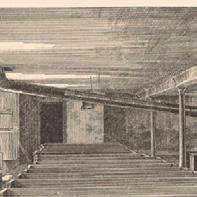
1888
Atlanta Baptist Seminary purchases 14 acres at a cost of $7,500 to relocate the campus to Atlanta’s West End community.

1889
1890 Dr. George Sale is named the Seminary’s third president.
1897 Atlanta Baptist Seminary is renamed Atlanta Baptist College.
1906 Dr. John Hope becomes the College’s first African American president.
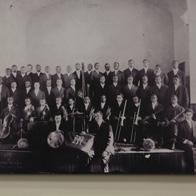
1911
1913 Atlanta Baptist College is renamed Morehouse College in honor of Henry L. Morehouse, the corresponding secretary of the American Baptist Home Mission Society.
1931
Dr. Samuel H. Archer becomes Morehouse’s fifth president and leads the College through the Depression.
1937 Dr. Charles D. Hubert is appointed acting president.
1940

1955

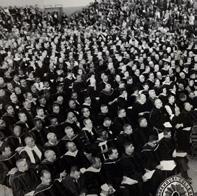
Dr. Benjamin E. Mays becomes Morehouse’s sixth president.
1948
Martin Luther King Jr. earns a Bachelor of Arts degree in sociology from Morehouse at age 19.
The Merrill Study Travel Program the College’s first study abroad program (for students and faculty) is established with funding from Charles E. Merrill.
1957
Morehouse College receives full accreditation by the Southern Association of Colleges and Schools.
1967
Morehouse celebrates its Centennial; and A Candle in the Dark: A History of Morehouse College, written by Edward A. Jones is published; and Dr. Hugh Morris Gloster ‘31 becomes the first alumnus to serve as president of Morehouse College.

1968
Delta of Georgia Chapter of Phi Beta Kappa Honor Society is established. The funeral of Martin Luther King Jr. ‘48, is held on campus.
1969 With a grant from the Olin Mathieson Charitable Trust, the Dual Degree Engineering Program is established through a partnership between the Atlanta University Center undergraduate institutions and Georgia Institute of Technology.
1970–75
Charles D. Hubert Hall, Benjamin G. Brawley Hall, Howard Thurman Hall, Frederick Douglass Commons, W.E.B. DuBois Hall, John H. Wheeler Hall, and Walter R. Chivers Hall are constructed.
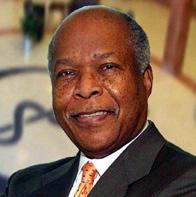
1975
Louis W. Sullivan ’54, is appointed dean of the Medical Education Program at the College, which eventually became an independent institution, the Morehouse School of Medicine, in 1981.
THE COLLEGE’S HISTORICAL TIMELINE

1978
The Martin Luther King Jr. International Chapel and Hugh M. Gloster Hall are completed.
1987


Dr. Leroy Keith Jr. ’61, becomes the second alumnus to lead the College as president.
1989
“The Candle in the Dark” Gala, featuring the Bennie and Candle Awards ceremony is inaugurated.
1993
Nima A. Warfield ’94, an English major, becomes the first Morehouse student and the second HBCU student awarded the prestigious Rhodes Scholarship.
1994 Mr. Wiley Abron Perdue ’57, is appointed acting president.
1995 The Andrew Young Center for Global Leadership established.
1996 Dr. Walter Eugene Massey ‘58 is named ninth President of Morehouse and the Center for Excellence in Science, Engineering, and Mathematics is established with a $6.7 million grant from the U.S. Department of Defense.
1997 The Division of Business Administration and Economics receives accreditation from the American Association of Schools and Colleges of Business.

2005
State-of-the-art Leadership Center opens. Later named for Dr. Walter E. Massey ’58.
2006 Morehouse completes a $118 million capital campaign and becomes permanent custodian of the Morehouse College Martin Luther King Jr. Collection.
2007 Dr. Robert Michael Franklin Jr. ’75, becomes Morehouse’s tenth president.

2010
The Ray Charles Performing Arts Center and Music Academic Building is completed.

2013
Dr. Willis B. Sheftall ’64, becomes acting president. Dr. John Silvanus Wilson Jr. ‘79, becomes Morehouse’s eleventh president. President Barack Obama delivers the 129th Commencement Address.

2017
Morehouse celebrates its Sesquicentennial, “A House United,” recognizing 150 years of educating and developing global leaders. Mr. William “Bill” Taggart becomes interim president; upon his unexpected passing, Michael Hodge becomes acting president. Mr. Harold Martin Jr. ’02 becomes Interim President.
Dr. David A. Thomas appointed as the 12th President of Morehouse College


2018
Franck Nijimbere became Morehouse’s fifth Rhodes Scholar.
2019
In collaboration with the other institutions within the Atlanta University Center Consortium and UnitedHealth Group, Morehouse announced the AUCC Data Sciences Initiative to help pave the way for students to enter these career paths. The Office of Institutional Advancement raised more than $107 million in a record-breaking fiscal year. This included philanthropist Robert F. Smith paying off the student loans of the Class of 2019. Additionally, Oprah Winfrey made a $13 million donation and philanthropists Patty Quillin and Reed Hastings donated $40 million.

2020
In the face of the global pandemic, the College moved to an entirely virtual learning environment while maintaining operations and its long-range planning. In preparation for the incoming Fall 2020 class, Morehouse partnered with Microsoft and UPS Foundation to provide computers to each member of that class. In October, the Board of Trustees ratified the College’s next five-year strategic plan which will go into implementation in early calendar 2021.

2021
As part of Morehouse’s strategic vision to go beyond borders, the College partnered with 2U to launch Morehouse’s first online bachelor’s degree programs.
Augusta Theological Institute is founded in the basement of Springfield Baptist Church by William Jefferson White, an Augusta Baptist Minister at the request of Edmund Turney, of the National Theological Institute for Educating Freedmen, and Richard C. Coulter, a former slave.
Reverend Dr. Joseph T. Robert becomes the first president of Augusta Institute.
Theological Institute moves to the basement of Friendship Baptist Church in Atlanta and becomes Atlanta Baptist Seminary.
Graves Hall becomes the first building erected on campus.
The Glee Club is organized by Kemper Harreld.
FOUNDERS AND PRESIDENTS
ASSOCIATE
PRESIDENTS OF MOREHOUSE COLLEGE












BOARD OF TRUSTEES
BOARD OFFICERS
WILLIE E. WOODS ’85, Chairman, New York, N.Y.
RICHARD THALER JR., Treasurer, Charleston, S.C.
A. SCOTT BOLDEN ’84, Secretary, Washington, D.C.
CHRISTOPHER B. COWAN ’87, Assistant Secretary, Washington, D.C.
DAVID A. THOMAS, PH.D., President, Morehouse College
TRUSTEES
JUSTIN BAYLESS Founder & President Journey Venture Studio
A. SCOTT BOLDEN ’84 Partner Reed Smith LLP
JEFFREY BRENZEL
Education Consulting/ Lecturer, Humanities Yale University
JAMES “JIM” CASSELBERRY JR. Chief Investment Officer 4S Bay Partners LLC
ALLEN M. CHAN President and CEO Robertson Scholars Leadership Program
DELMAN L. COATES ’95 Senior Pastor Mt. Ennon Baptist Church
CHRISTOPHER B. COWAN ’87 Managing Director Overseas Private Investment Corp.
JAVARRO EDWARDS President JME Group LLC
ALAN H. FLEISCHMANN Founder, President, and CEO Laurel Strategies Inc.
EDDIE S. GLAUDE JR. ’89 Professor and Department Chair Department of African American Studies Princeton University
VALERIE S. GRANT
Senior Portfolio Manager Nuveen, LLC
DOUG HERTZ
President & CEO United Distributors Inc.
FREDERICK S. HUMPHRIES JR. ’83 Vice President, U.S. Government Affairs Microsoft Corp.
SAMUEL R. JOHNSON ’88
Americas Vice Chair, Market & Accounts Ernst & Young
JENNIFER MANN
Corporate Senior Vice President & President of North America Coca-Cola Company
HAROLD MARTIN JR. ’02 CEO Taco Mac Restaurant Group
JOHN O’NEILL
President, Central Region Cushman & Wakefield
DAVID A. THOMAS, PH.D. President Morehouse College
JEFFREY HANDY
DUANE
VERDUN S. PERRY ’94 Senior Managing Director and Global Head of Strategic Partners Blackstone
RUTH SIMMONS Former President Prairie View A&M University
RICHARD THALER JR. Managing Partner Lieutenant Island Partners LLC
R. OWEN WILLIAMS Former President Associated Colleges of the South
WILLIE E. WOODS ’85 President and Managing Partner ICV Partners
STUDENT
KAMAR
MEKHI
BILLYE S. AARON
BENJAMIN A. BLACKBURN II ’61
ROBERT DAVIDSON JR. ’67
JAMES L. HUDSON ’61
DALE E. JONES ’82
ROBERT LEVIN

C. DAVID MOODY JR. ’78
JIM MOSS ’70
AVERY
DOROTHY
LEADERSHIP MISSION AND STRATEGIC PILLARS
BOARD OF TRUSTEES

















GEORGIA RANKINGS
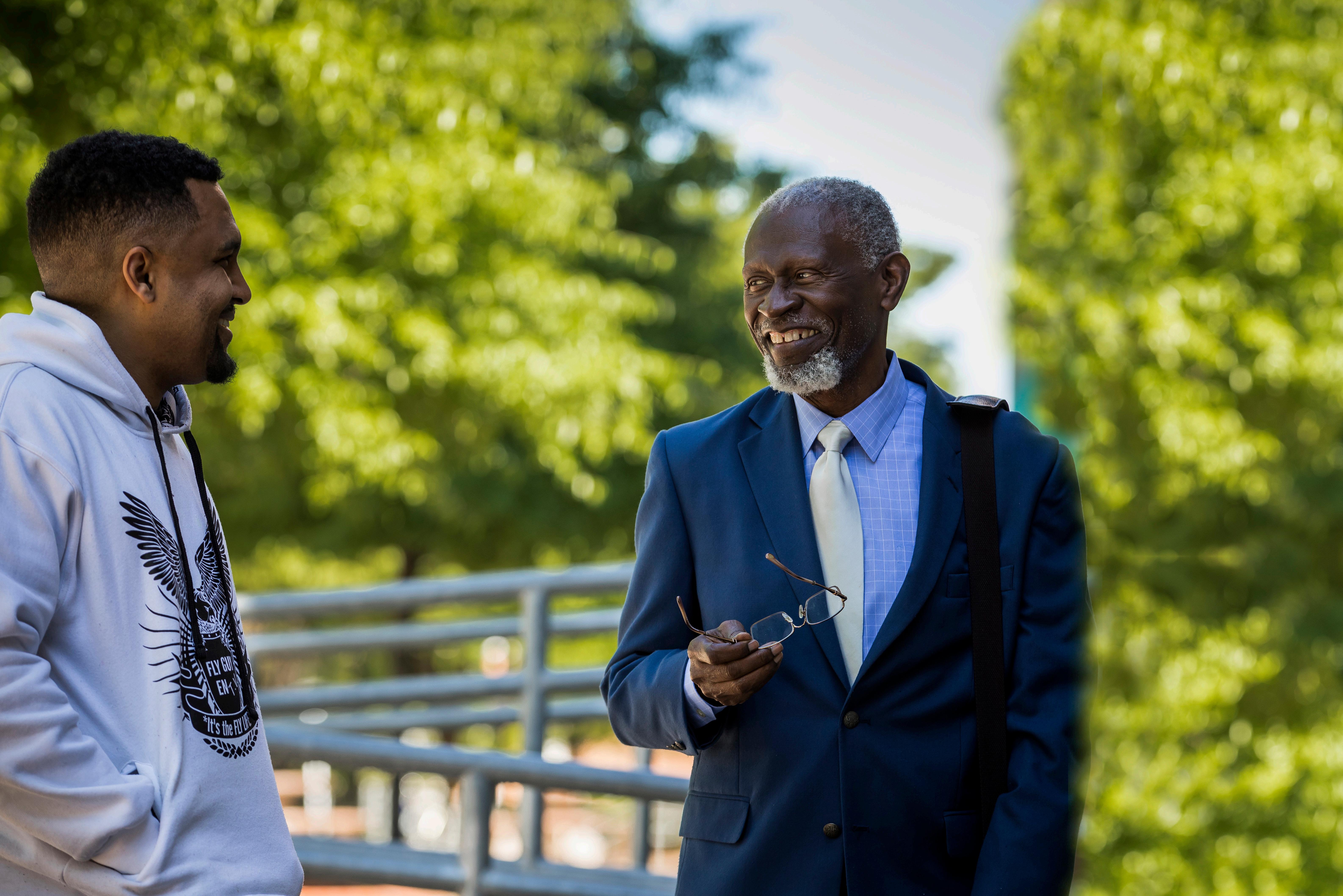
















































ADMISSIONS






FIGURE 5



8
FIGURE
ENROLLMENT BY MAJOR

Source: Integrated Postsecondary Education Data System (IPEDS), Fall Enrollment Survey, Spring Collection; Banner data extracted as of 10-15-23
Note: Students earn two bachelor’s degrees through the Dual Degree Engineering Program (DDEP) –
degree from Morehouse and one degree
schools. In Banner, students coded as Pre-Engineering majors are counted as General Science (DDEP) majors, Pre-Psychology majors are counted as Psychology majors, and Pre-Cinema, Television & Emerging Media Studies (CTEMS) are counted as CTEMS majors. First-time, first-year students, are classified as 1st-time freshmen, admitted in the fall semester of the noted year, and all classifications (to account for students that earned college credit during high school). Other first-year students are classified as freshmen, excluding 1st-time freshmen, and including transfer, continuing, and returning student-types.


PSYCHOLOG Y
KINESIOLOG Y, SPORT STUDIES, AND PHYSICAL EDUCATION
COMMUNICATIONS STUDIES
CINEMA, TELEVISION AND EMERGING MEDIA ST U DIES
ECONOMICS
SOFTWARE ENGINEERING
SOCIOLOG Y
JOURNALISM IN SPORTS, SOCIAL JUSTICE, AND CULTURE
THEA
AND PERFORMANCE
ENGLISH
GENERAL SCIENCE (DDEP)
UNDECLARED
AFRICANA STUDIES
URBAN
DANCE
CHINESE STUDIES EARLY


Source: Integrated Postsecondary Education Data System (IPEDS), Fall Enrollment Survey, Spring Collection; Banner

Source: Integrated Postsecondary Education Data System (IPEDS), Fall Enrollment Survey, Spring Collection; Banner data extracted as of 10-15-2023
Note: Note: Students earn two bachelor’s degrees through the Dual Degree Engineering Program (DDEP) – one degree from Morehouse and one degree from one of fourteen participating engineering schools. In Banner, students coded as PreEngineering majors are counted as General Science (DDEP) majors and Pre-Psychology majors are counted as Psychology majors. First-time, first-year students, are classified as 1st-time freshmen, admitted in the fall semester of the noted year, and all classifications (to account for students that earned college credit during high school)..
ACADEMICS


ACADEMICS
ACADEMIC DIVISIONS
Morehouse’s four academic divisions house 34 programs led by world-class faculty committed to fostering interdisciplinary learning.




Business and Economics (BE) Humanities, Social Sciences, Media and Arts (HSSMA) Science, Technology, Engineering, and Mathematics (STEM) Professional and Continuing Studies (PCS)
(BE)
CENTERS + INSTITUTES
Andrew Young Center for Global Leadership
The Andrew Young Center for Global Leadership (AYCGL) provides institutional, national, and international leadership in the examination and generation of solutions for global challenges, the study of social justice-based leadership, social justice activism training and the development of social change agents, and co-curricular experiences designed to prepare students for lives as global citizens and leaders. Comprised of three interdependent institutes and an academic program, the AYCGL includes the Institute for Research, Civic Engagement, and Policy, the Institute for International and Experiential Education, the Institute for Social Justice Inquiry and Praxis, and the Leadership Studies Program. The Office of International Education is housed in the AYCGL and, through study abroad and other programming, expands upon multiple efforts to implement experiential education at the college. The AYCGL is home to numerous programs, including those supporting scholarly engagement and production, academic and leadership development, social justice activism and civic engagement, and community engagement. Two scholarship programs housed in the AYCGL, the Oprah Winfrey Scholars Program and SMASH Scholars Program, support approximately 80 students and provide co-curricular leadership and service experiences designed to develop social justice focused, globally informed leaders.

Black Men’s Research Institute (BMRI)
The Black Men’s Research Institute (BMRI) aims to advance more inclusive curricular and programmatic offerings and scholarship/ creative work encompassing the humanities, humanistic social sciences, and artistic frames not always connected with understandings of Black men. BMRI provides a highly visible platform by which faculty, students, and the broader community may engage and, if necessary, counter narratives and policies that do not attend to the full breadth of experiences and perspectives reflected in an intersectional orientation to Black men’s experiences and masculinities. BMRI will focus on the intersection of culture and social justice by contextualizing Black masculinities in all their manifestations, both within and outside of the U.S. Therefore, the Institute also will provide a context for engagement of local, national, and global scholars in meaningful dialog about expanding notions of Black masculinities and Black men’s lived experiences beyond a heteronormative, patriarchal frame.
Center for Black Entrepreneurship (CBE)
The Center for Black Entrepreneurship (CBE) is a partnership of the Black Economic Alliance Foundation (BEAF), Spelman College, and Morehouse College, located on the campuses of Morehouse and Spelman. The CBE seeks to eliminate the access barriers faced by Black entrepreneurs, professional investors, and business builders by leveraging education, mentorship, access to capital, and opportunity. The CBE offers academic curriculum to students in the Atlanta University Center Consortium (AUC), which includes Clark Atlanta University, Morris Brown College, and Morehouse School of Medicine in addition to Spelman and Morehouse. The Center also supports co-curricular programming that will provide students with additional tools, training, networks, and opportunities
necessary for success. Additionally, the CBE hosts online courses and certificate programs to make its curriculum and training accessible to a broader adult audience across the globe. These offerings include stackable credits, upskilling opportunities, and co-curricular engagements for students from any school, including older and non-traditional students, as well as to non-student current and aspiring entrepreneurs.
Morehouse Innovation and Entrepreneurship Center (MIEC, Institute of CBE)
The Morehouse Innovation & Entrepreneurship Center (MIEC) is a global model for higher education and industry collaborations, programs that connect education with entrepreneurial leadership development, and community-focused resources and support. The mission of MIEC is to start, scale and sustain Black businesses whether it is with our students or businesses in the community. MIEC sees entrepreneurship and business ownership as a pathway of closing the racial wealth divide and a source of economic empowerment. MIEC’s mission is accomplished by providing the following programs: (1) Co-curricular programming to expose undergraduate college students to a better understanding of an entrepreneurial mindset. These initiatives include a speaker series, pitch competitions, startup workshops, internships, and innovation sprints, (2) technical assistance to existing businesses in the form of business management curriculum to aid access to capital, coaching and increase in contracts, and (3) research and consultative services to government agencies, corporations, and universities seeking to expand their under-represented small business suppliers.
INITIATIVES + PROGRAMS
Federal Trio Programs
The Federal Trio Programs are sponsored by the U.S. Department of Education and funded under Title IV of the Higher Education Act of 1965. These programs assist students in overcoming class, social, academic, and cultural barriers to higher education. Currently, there are seven programs on the Morehouse College campus serving lowincome individuals and firstgeneration college students from middle school to post baccalaureate programs. These seven programs include: (1) Upward Bound (two projects), (2) Talent Search, (3) Upward Bound Math/Science Regional Center, State Math/Science Center, Greater Orlando Math/Science, and (4) Ronald E. McNair Post Baccalaureate Program.Collectively, these programs identify promising students and (1) support them through the transition from middle school to high school as well as with the college application process (Talent Search); (2) prepare students for college-level coursework (Upward Bound); (3) increase the number of high school students from underrepresented backgrounds in obtaining degrees in math, science and engineering (Math/Science Regional, State, Greater Orlando Centers); and (4) provide undergraduate research opportunities to increase the number of students who complete Ph.D. programs in STEM (Ronald E. McNair).
HBCU STEM Undergraduate Success Research Center
The HBCU STEM Undergraduate Success (STEM US) Research Center, funded by the National Science Foundation, seeks to understand and disseminate information on student success in STEM from the HBCU perspective. The three areas of research are: (1) Course-based Undergraduate Research Experiences (CUREs), (2) Intersectionality, Scientific Literacy, Intersectionality, Project Knowledge Academic Mentoring, and (3) Academic Pipeline Project/THRIVE. Additionally, the HBCU STEM Undergraduate Success Research Center seeks to provide research experiences to undergraduate, postbaccalaureate, and graduate students. These experiences are meant to allow students the opportunity to become familiar with the research process while supporting students as they pursue their academic and research goals.
International Comparative Labor Studies (ICLS)
International Comparative Labor Studies (ICLS) is a social science and humanities interdisciplinary initiative to educate for sustainable careers contributing leadership, research, and organizing for students with social justice ideals. ICLS helps students develop a 21st century
DEAN: SHERRHONDA GIBBS, PH.D.
EDDIE C. RED, PH.D. ’90

vision for sustainable meaningful work lives for African American and all workers through study of worker organizing and community development in the South and comparison of strategies globally. In the spirit of Djehuti – Kemetic (ancient Egyptian) God of science and shared knowledge of producing – ICLS seeks to close the gap between physical and mental labor by balancing experiential learning with theoretical knowledge. ICLS is comprised of two major programs, the 1) certificate program, and 2) the Research Fellows Program. ICLS provides a unique program of direct education and research services to unions and other public interest organizations. The ICLS Research Fellows Program will include scholar activists who possess the professional acumen and interest to develop, critique, and defend political economy propositions.
Morehouse Center for Excellence in Education (MCEE)
The Morehouse Center for Excellence in Education (MCEE) aims to develop a talented pipeline of world-class practitioners, innovators, policymakers, leaders, and researchers who are equipped to transform and improve educational outcomes in urban and underserved communities. MCEE has an unrelenting focus on social justice, educational excellence, equity, and ethical leadership. These core values are embedded in all aspects of the student experience and the work of the Center. Woven into all courses and activities are the Morehouse College standards of excellence that promote acuity, agency, integrity, and brotherhood. The Center’s initiatives are designed to be responsive to the ever-changing P-16 education landscape. The college’s Education Department and Teacher Education Program are connected to the Center and support students pursuing degrees in Early Childhood Education and Educational Studies, as well as those seeking certification in Secondary Education.
Morehouse College Makerspace Exploration Center
The Morehouse College MakerSpace Exploration Center promotes student learning through making, an iterative, hands-on experiential activity that teaches students to apply skills, build models, identify problems, revise ideas, and share new knowledge with others. Defined as a cooperative experience where students can make things, conduct research, and collaborate, the innovation of making encourages creativity, artistic expression, and innovation through the use of technology. The MakerSpace facilitates both formal and informal learning, offering a space in which students conduct original experimentation, engage in positive risk-taking activities, and benefit overall from cross-disciplinary interactions and technically advanced learning. The MakerSpace Exploration Center facilitates the “handson” use of new technologies like 3D printing and laser ablation (cutting), as well as the use of classic techniques in paper, metal, and wood fabrication.
Morehouse College Martin Luther King, Jr. Collection Programs
The Morehouse College Martin Luther King, Jr. Collection represents an unparalleled gathering of primary documents from Dr. Martin Luther King, Jr’s early years at the college through his later life as a global leader for civil and human rights. As a treasured intellectual
resource, the Collection provides programmatic opportunities for faculty and students through teaching, research, and scholarship, and other co-curricular initiatives that promote Dr. King’s nonviolent teachings and philosophy. The Office of the Morehouse College King Collection has oversight for these programs.
Public Health Sciences Institute (PHSI)
The Morehouse College Public Health Sciences Institute (PHSI) was established in 1988 under a cooperative agreement with the Centers for Disease Control and Prevention (CDC) enhance diversity among emerging leaders within the public health workforce. The PHSI is affiliated with the only undergraduate minor in Public Health available to students in the Atlanta University Center Consortium. Additionally, PHSI offers a summer public health internship, Project Imhotep, which is an 11-week program funded through a cooperative agreement with the CDC. It is Project Imhotep’s mission to increase the representation of underrepresented minority students in graduate programs and careers in public health. In addition to these offerings, the PHSI offers career counseling and leadership and personal development opportunities to support students as they explore, build, and pursue a career in public health.
SPECIAL PROGRAMS
Army Reserve Officer Training CORPS (AROTC)*
Crown Forum
Domestic Exchange
Dual Degree Engineering Program (DDEP)
Dual Enrollment
Howard Thurman Honors Program
Justice-Mester (Jmester)
Navy Reserve Officer Training CORPS (NROTC)*
New Student Orientation (NSO)
Pre-LAW Program
Study Abroad
Summer Academy
TRIO Program
*Morehouse College Army Reserve Officer Training Corps (ROTC) is a subsidiary of the Georgia State University ROTC program. Air Force ROTC is located on the campus of the Georgia Institute of Technology




Robert W. Woodruff Library
FACULTY








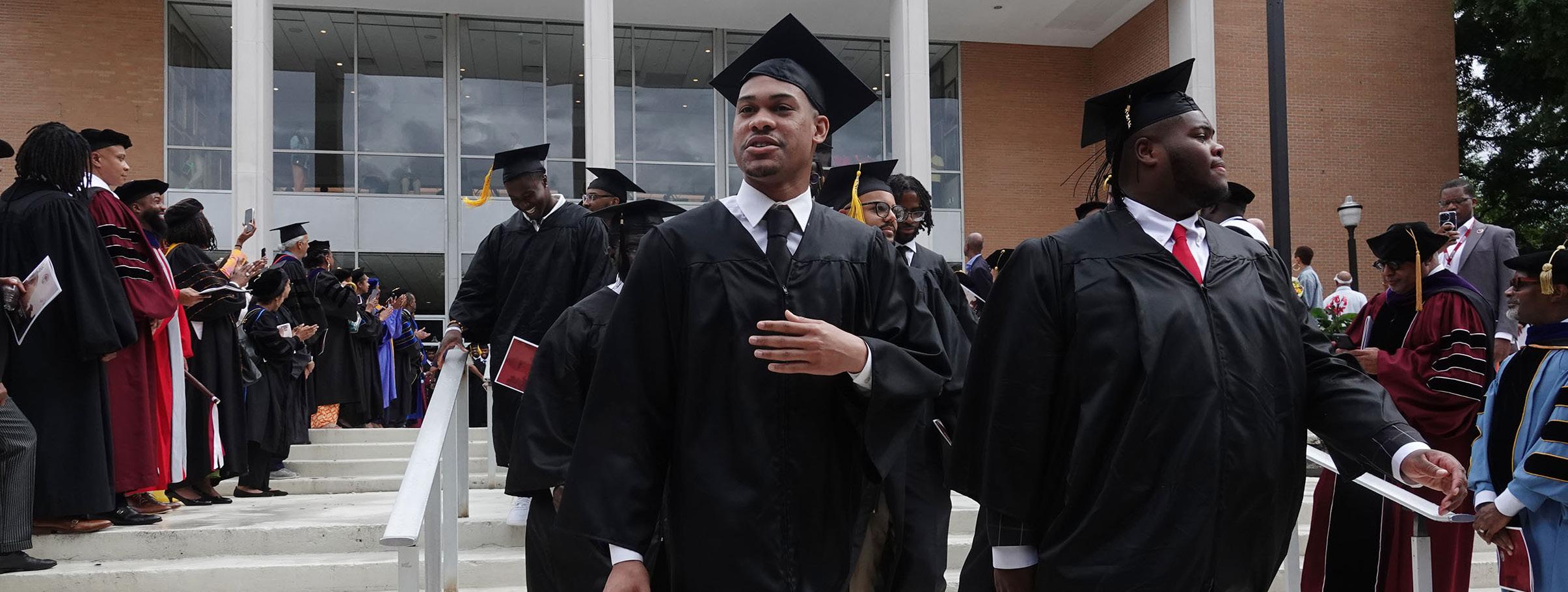
RETENTION, PROGRESSION, AND GRADUATION

CINEMA, TELEVISION, AND EMERGING MEDIA STUDIES
JOURNALISM IN SPORTS, SOCIAL JUSTICE, AND PHYSICAL EDUCATION
GENERAL SCIENCE (DDEP)
CHINESE STUDIES
CHEMISTRY
SOFTWARE ENGINEERING MUSIC
SPANISH AR T APPLIED PHYSICS (DDEP) MATHEMATICS
INTERNATIONAL STUDIES



FIGURE 17
COMPANIES THAT HIRED 2023 GRADUATES






























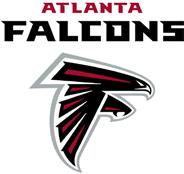





















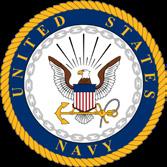

FIGURE 18
FINANCIAL AID


FINANCIAL AID

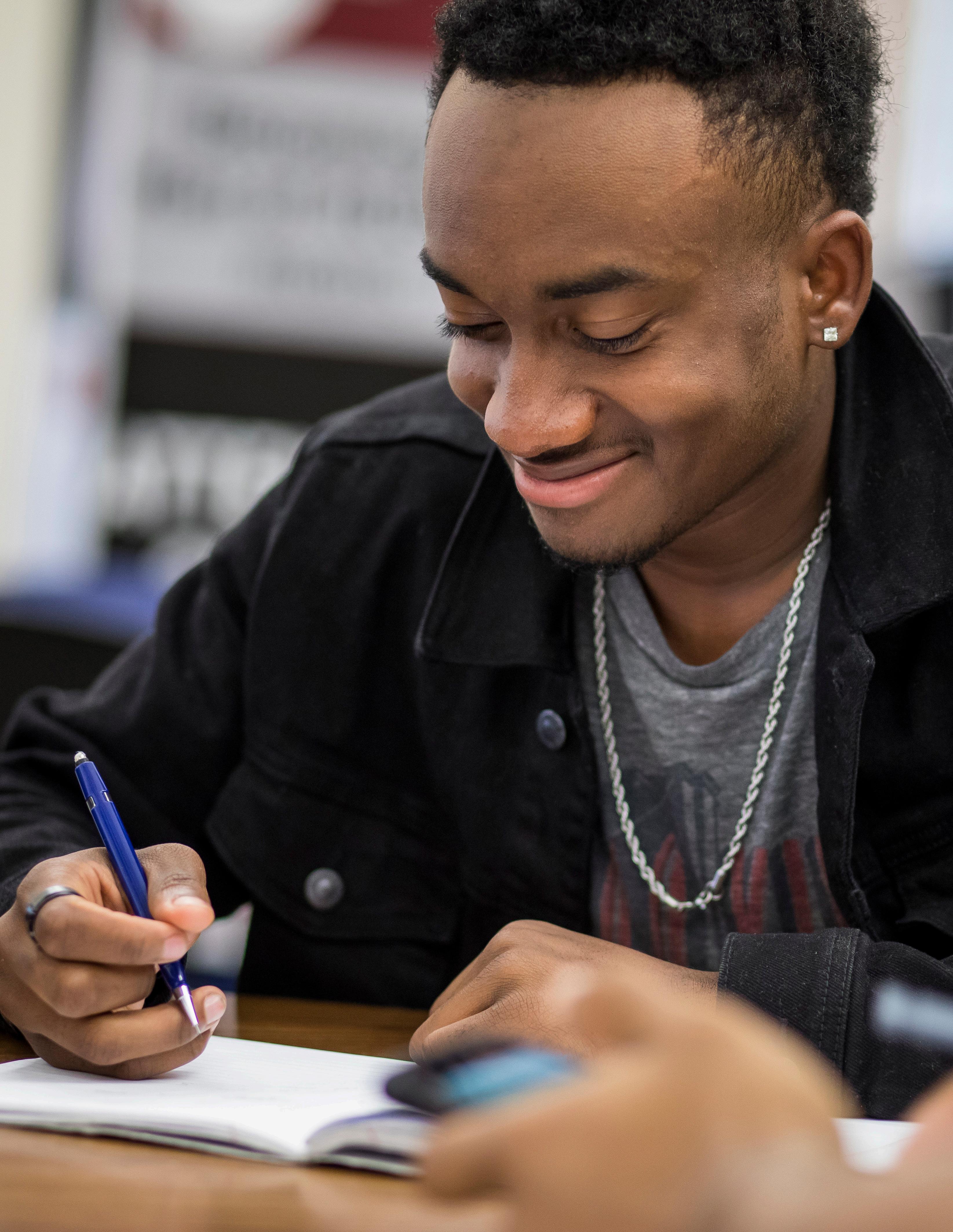
FINANCES








GEORGIA
CAMPUS LIFE

CAMPUS LIFE
There are over 50 organizations at Morehouse that help students develop as leaders while nurturing passions in academic, athletic, cultural, and artistic pursuits.
CAMPUS ALLIANCE FOR STUDENT ACTIVITIES
Homecoming
Spring Fest
Alcohol, Drug and Risky Behavior Awareness Week
Disability Awareness Week
Depression Awareness Week
Diversity Awareness Week
ACADEMIC/PRE-PROFESSIONAL ORGANIZATONS
National Society of Black Engineers
SparkHouse Capital
Tech&
Morehouse Sociological Association
Morehouse Business Association
The Black Odyssey Chess Society
Morehouse Biology Club
PropelU
Morehouse Music Group
Morehouse Chapter of Phi Alpha Delta Law Fraternity, International
The ELITE Educators Association
Morehouse Chapter of the American Advertising Federation
Morehouse Sports Business Association
Morehouse Pre-Law Society
Morehouse College Pre-Dental Society
Morehouse Health Careers Society
ARTISTIC/CREATIVE ORGANIZATIONS
The Agency
Morehouse Filmmakers Association
Morehouse College Theatre Ensemble
Thee Maroon Muses Dance Company
CULTURAL ORGANIZATIONS
Morehouse ADODI
Atlanta United Caribbean VYBZ - Morehouse Chapter
African Students Association
The District of Columbia Metro Student AssociationMorehouse College Chapter
Cali Club
Morehouse Texas Club
Morehouse Spanish Club
New Jersey Student Association
New York Club
Morehouse International Student Organization
Morehouse Model United Nations
404 Clubs
FRATERNAL ORGANIZATIONS
Fraternal Life Council
Alpha Phi Alpha Fraternity, Inc. Alpha Rho Chapter
Groove Phi Groove Social Fellowship Organization
Iota Phi Theta Fraternity, Inc. Alpha Pi Chapter
Kappa Alpha Psi Fraternity, Inc.
Pi Chapter
Omega Psi Phi Fraternity, Inc. Psi Chapter
Pershing Rifles Military
Fraternity Chapter B-16
Phi Beta Sigma Fraternity, Inc. Chi Chapter
Phi Delta Epsilon Medical Fraternity
Phi Mu Alpha Sinfonia Fraternity
Xi Eta Chapter
HONORARY ORGANIZATIONS
Howard Thurman Honors Program Student Association
SERVICE & SOCIAL JUSTICE ORGANIZATIONS
Achieve M.O.O.R.E. (Morehouse Chapter)
Actively Changing Tomorrow through Service (A.C.T.S.)
Counseling Humans In Life Lessons (C.H.I.L.L.)
GreenHouse
LYTEhouse (Lifting Youth Through Enrichment)
NAACP
Morehouse Chapter of the National Action Network
Lifting Our Voices (LOV)
Morehouse College Democrats
Collegiate 100 of Morehouse College
The Cycle
National Marrow Donation Program (NMDP)
Protect Your Peace
Peacemakers
SPECIAL INTEREST ORGANIZATIONS
Maroon Tiger Gaming
Black Students Roll
The Morehouse College Chapter of the UNCF Pre-Alumni Association
Morehouse Entrepreneurship Club
Morehouse Motors
Atlanta Orators
Enduring Truth Book Club
House of Strength
The Black Puroresu Collective
Brown Street Pavaler Tree
SPORT ORGANIZATIONS
Morehouse Polo Club
Indoor Strikers
Boxing Club
Morehouse Ultimate Club
Morehouse Soccer Club
Morehouse College Rugby Football Club - Black Sabers
Morehouse Lacrosse Club Team
ATHLETICS


ATHLETICS
Institutional Sports Profile








BASEBALL
FOOTBALL
BASKETBALL
GOLF
TRACK AND FIELD
VOLLEYBALL
CROSS COUNTRY
TENNIS



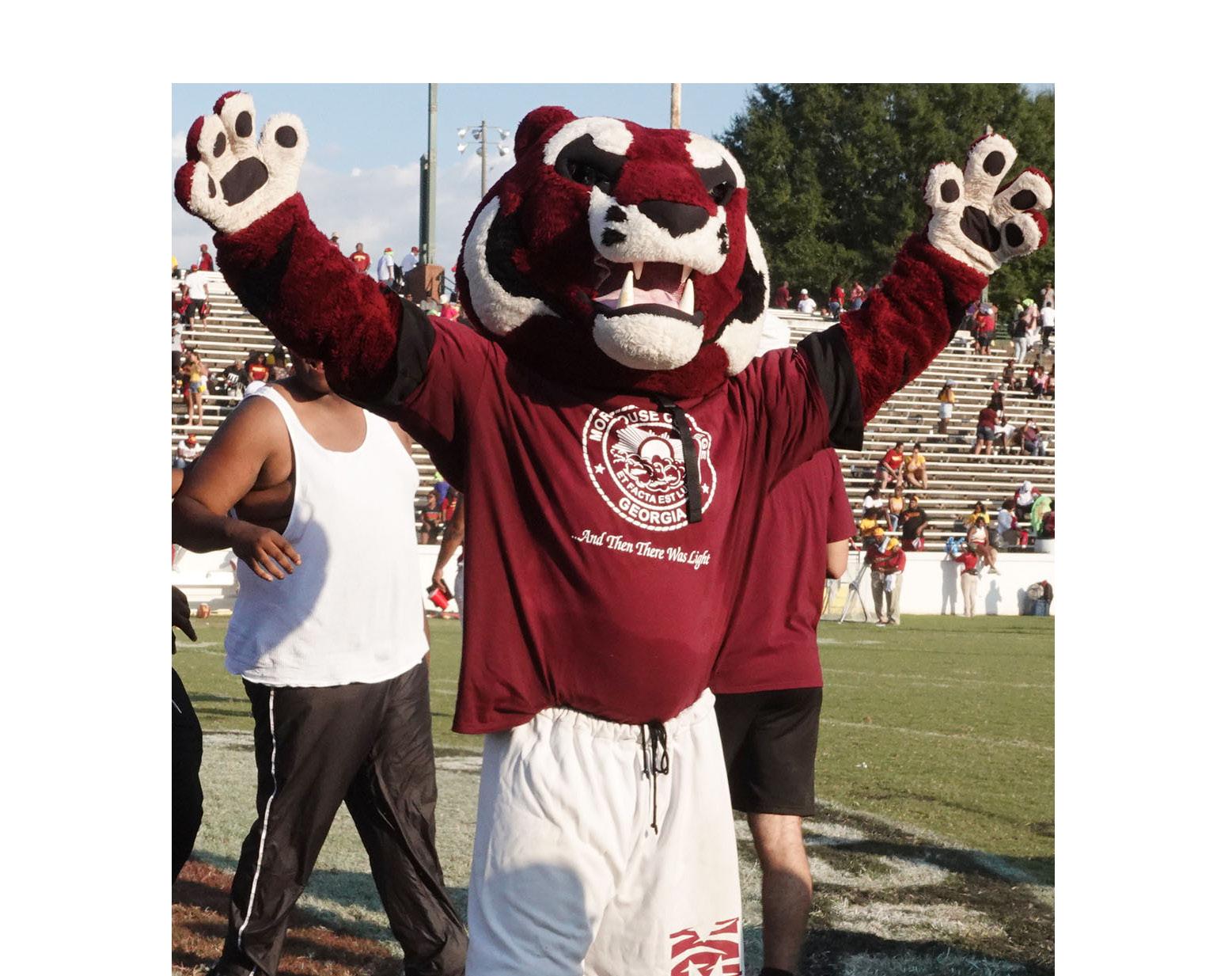


MOSES








BRAILSFORD R. BRAZEAL HOUSE
Designation: Freshman
Constructed: 1989
Occupancy: 142
SAMUEL T. GRAVES HOUSE
Designation: Freshman
Constructed: 1889
Occupancy: 113
CHARLES HUBERT HOUSE
Designation: Upperclassmen
Constructed: 1970
Occupancy: 105
LIVING LEARNING CENTER
Designation: Upperclassmen
Opened: 1970
Occupancy: 128
BENJAMIN E. MAYS HOUSE
Designation: Upperclassmen
Opened: 1962
Occupancy: 92
OTIS MOSS RESIDENTIAL SUITES
Designation: Upperclassmen
Constructed: 2003
Occupancy: 348





WILEY A. PERDUE HOUSE
Designation: Upperclassmen Constructed: 1996 Occupancy: 203
JOSEPH T. ROBERT HOUSE
Designation: Upperclassmen Constructed: 1916
Occupancy: 39
THOMAS KILGORE JR. HOUSE
Designation: Upperclassmen Occupancy: 72
W.E.B. DUBOIS INTERNATIONAL HOUSE
Designation: International Freshman Constructed: 1974
Occupancy: 118
WILLIAM JEFFERSON WHITE HOUSE
Designation: ROTC Students Opened: 1982
Occupancy: 76



















EATERIES










